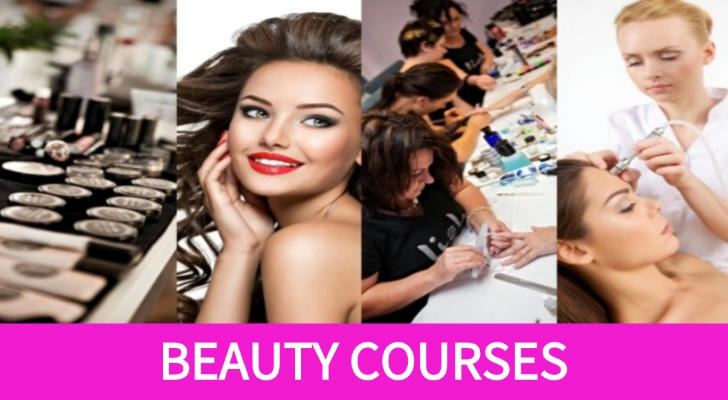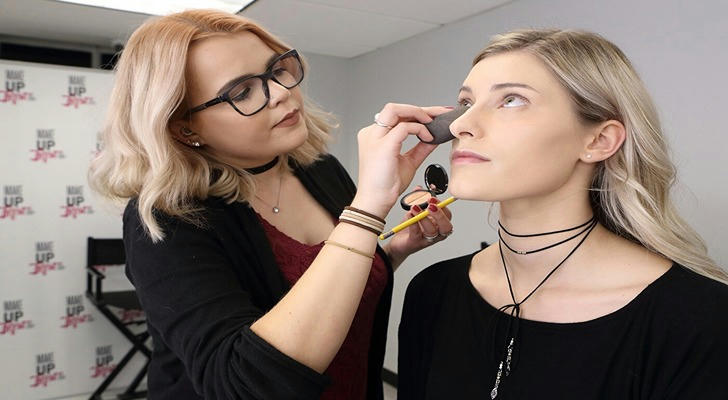Learning makeup from scratch What are some makeup courses worth considering in the United States
In the United States, makeup is not only an art of beauty, but also a professional skill worth cultivating. 🎨 Whether it is daily makeup or film and television styling, it is inseparable from the skillful hands of professional makeup artists. Many people who are passionate about makeup have transformed their interest into a creative and promising career by participating in professional courses. This article will take you to understand the types, learning content and development paths of mainstream makeup courses in the United States, helping you move from "knowing how to put on makeup" to "doing makeup". 💄✨

1. Why choose a professional makeup course 👩🎨
On social media, watching bloggers easily put on exquisite makeup, you may think I can learn it myself. But the biggest difference between professional courses and online tutorials is - systematic and professional.
Professional makeup courses not only teach makeup skills, but also focus on the following aspects
Skin type and product identification Choosing the right products for different skin types is the basic skill of makeup artists.
Color theory and makeup design From basic color matching to stage makeup, film and television makeup, and wedding makeup, the course will take you to play with the art of color.
Tool use and hygiene standards The correct use and cleaning of brushes, powder puffs, and eyelash curlers are compulsory courses for every makeup artist.
Customer communication and professional ethics Learn to listen to customer needs and build a good reputation.
These courses are not only suitable for students who want to become professional makeup artists, but also for people who want to improve their self-image management ability. 🎯
2. What are the mainstream makeup courses in the United States 🎓
Based on learning objectives, course length and school positioning, American makeup courses can be roughly divided into the following categories
1. Comprehensive Cosmetology Program
This is the most systematic course, usually covering hairdressing, nail art, skin care and makeup. Suitable for students who want to enter multiple fields of the beauty industry.
📍Suitable for planning to become a certified beautician, expanding multi-field skills
🕐 Course duration usually more than 1,000 hours
🎯 After graduation, you can obtain a state-level beautician license
2. Professional Makeup Course (Makeup Artistry Program)
Focusing on makeup techniques, the course content includes daily makeup, wedding makeup, film and television makeup, special effects makeup, etc. Some schools will also involve photography lighting and styling collaboration.
📍Suitable for students who focus on makeup
🕐 Course duration about 300-600 hours
3.🎯 After graduation, you can become a freelance makeup artist, brand counter consultant, etc.
3. Quick Skills Class (Boot Camps or Workshops)
Suitable for students who already have a certain foundation and want to focus on strengthening a certain skill in a short period of time, such as Korean makeup, stage makeup, etc.
📍Suitable for makeup artist training, self-learner improvement
🕐 Course duration 1-8 weeks
🎯 Focus on practical experience, suitable for strengthening skills
3. Case analysis Transformation from interest to career💼

🧍♀️Amber's story
Amber originally worked in the retail industry. She liked to put on makeup and follow beauty bloggers every day, but she never thought that this could become a serious career. It was not until the pandemic that she signed up for a 6-month professional makeup course and systematically learned makeup design and customer management.
After graduation, she started as a part-time wedding makeup artist and gradually received invitations for modeling and brand events. Today, she is a contracted makeup artist for a studio in Los Angeles and regularly holds her own beauty workshops. She said My biggest transformation is from 'liking makeup' to 'knowing what to do'.💡
This case shows that systematic learning can turn a hobby into a livelihood skill, and vocational courses are the clearest navigation on this road. 🧭
4. How to choose a course that suits you 🔍
In the United States, different states have different certification and course settings for the beauty industry. When choosing a course, it is recommended that you consider the following aspects
Course certification Choose a course that is recognized by the state government or industry association.
Teaching method Offline teaching usually includes more practical operations, and online courses are suitable for those with irregular schedules.
Tutor background Find out whether the instructor has practical experience and whether he has participated in large-scale projects or cooperative brands. Career support Some schools provide internship recommendations, employment guidance or portfolio guidance.
In addition, you can also pay attention to the school's past students' works or career development to evaluate the value of the course.
5. What are the career directions after graduation 🚀
After completing the beauty career course, you can choose a variety of paths
Freelance Makeup Artist Provide makeup services for weddings, fashion shows, and photography projects.
Brand Counter Consultant Provide product trials and makeup guidance in beauty brand stores.
Film and TelevisionStage Makeup Artist Provide professional makeup design for crews or stage performances.
Beauty BloggerContent Creator Combine makeup skills to create a personal brand or share makeup tutorials.
This industry welcomes diverse identities. As long as you are willing to learn and dare to try, there is a place for you. 🎤
Start with interest and put your skills into practice✨
Makeup is an art, a profession, an expression, and a communication. From putting on a good face to creating the stage light for others, the professional makeup course is a professional and fun journey. 🎨
